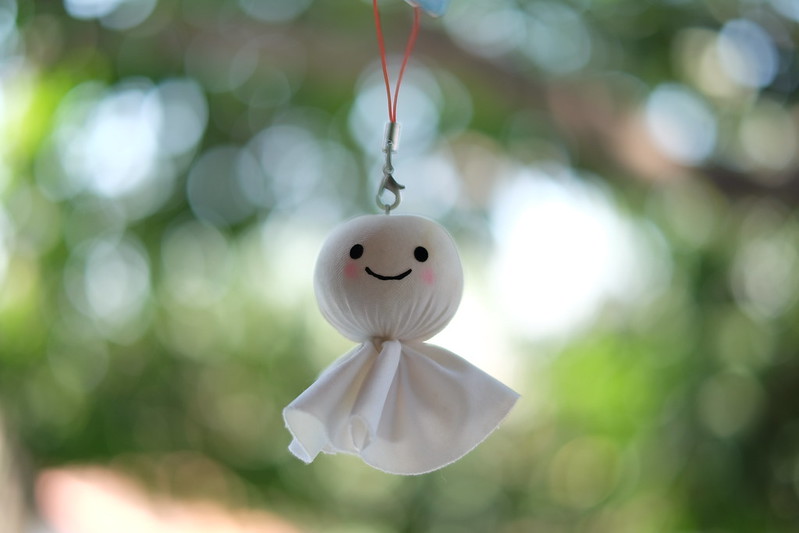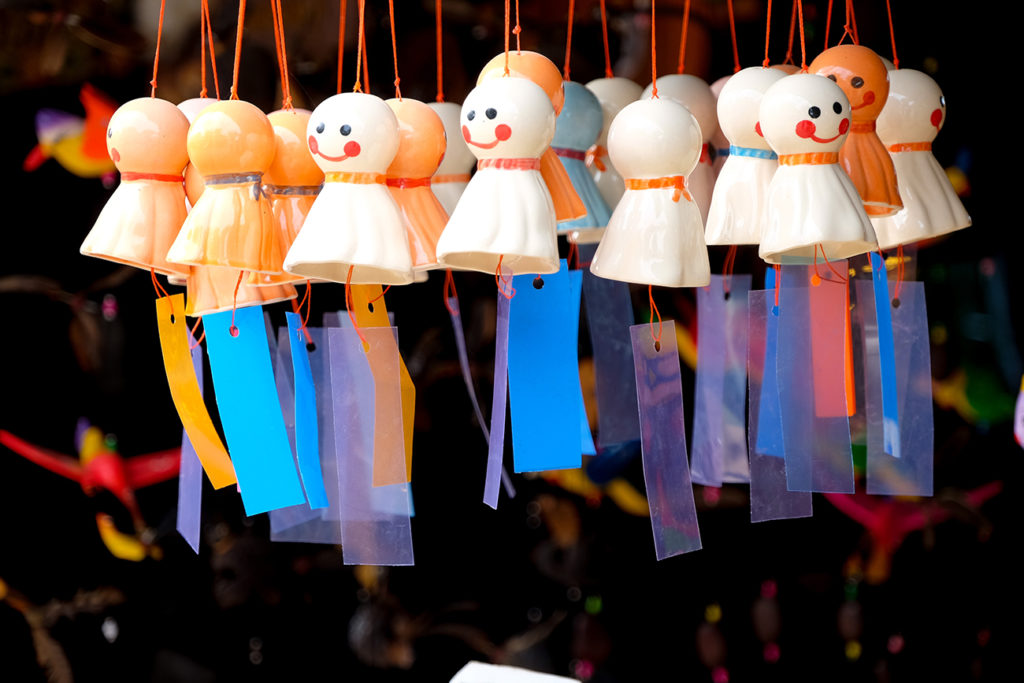
Sunny Days Ahead with Teru Teru Bōzu
Teru teru bōzu (照る照る坊主てるてる坊主), “shine shine monk” in Japanese, is a handmade doll made from white cloth or paper that Japanese farmers traditionally tied with string and hung outside their windows. The teru teru bōzu dolls are almost all identical in how they look, a ghost with a round head. They are thought to be amulets that possess magic powers that can bring good weather and prevent rain.
The Japanese word “teru” means sunshine and “bōzu” is a Buddhist monk. It can also mean “bald-headed” or a term of endearment for little boys. Teru teru bōzu grew in popularity during the Edo Period. Farmers’ children would make them a day before they needed good weather. The people would chant “fine-weather priest, please let the weather be good tomorrow.”
It is tradition that when good weather is granted, a libation (ritual liquid to the gods) of holy sake is poured over the dolls. The dolls are then allowed to be washed away in the river.
Today, children make teru teru bōzu using tissue paper, cotton, and string and hang them by their window hoping to get sunny weather the next day. If the dolls are hung upside down, it can mean a prayer for rain. These dolls are a common sight in Japan.
A Japanese nursery rhyme about the teru teru bōzu, written by Kyoson Asahara and composed by Shinpei Nakayama in 1921, includes these lines:
Teru-teru-bozu, teru bozu
Do make tomorrow a sunny day
But if the clouds are crying [it’s raining]
Then I shall snip your head off
It is the story of a monk who promised farmers that he would stop the prolonged rain that threatened to ruin all their crops.
The monk failed to deliver on his promise and was decapitated. But Japanese historians believe that bōzu refers to the round, bald head of a monk and teru teru is the reflection of the bright sunlight on a bald man’s head.

